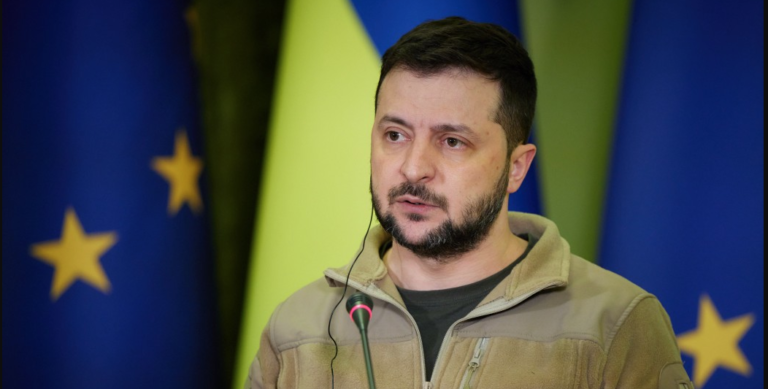I recently came across three pieces of news that are worth thinking about. The first article discussed the role of the US government in encouraging arms exports, which often lead to violence in developing countries. Here is Bloomberg:
Last October, a recently fired police officer walked into his stepson’s preschool in northeast Thailand and, in less than 30 minutes, killed 23 children and two teachers. Panya Kamrab killed some of his victims with a sugarcane machete and shot others at point-blank range with a pistol, including three local government workers eating lunch outside the school. The rampage, which left a total of 36 people dead, is considered the worst in Thai history and one of the worst in the world.
The killer’s weapon, a Sig Sauer P365 — praised by the company, small enough to be easily concealed yet capable of holding 13 rounds – had traveled more than 8,000 miles from a factory on New Hampshire’s rocky coast to Thailand’s lush Nong Bua Lamphu province. It was among a growing number of handguns and semi-automatic rifles exported by U.S. gunsmiths and linked to violent crimes. . . . The federal government helped drive international sales of rapid-fire weapons to record levels.
Is the US government responsible for deaths caused by the arms exports it encourages? Or is the fault of those who used these weapons?
Here is Policy:
Secretary of State Antony Blinken ended three days of meetings in China on Friday with a stark warning to Chinese leaders: Stop exporting materials that allow Russia to rebuild its industrial base or face U.S. sanctions.
Chinese state-owned enterprises supply key components to Russia’s defense industrial base, including microelectronics and machine tools, which have “a significant effect against Ukraine” and constitute “a growing threat that Russia poses to countries in Europe,” Blinken told reporters in 2017. a press briefing in Beijing on Friday.
Is the Chinese government responsible for how Russia uses its machine tools and microelectronics?
To be clear, there is a good case for China to suspend exports of key materials to Russia. But it is also important to recognize that countries often put their own economic interests ahead of those of smaller countries on the other side of the world. A third story studies one such case, involving a division between the US government and Ukraine over the issue of drone strikes against Russia:
The United States has urged Ukraine to stop attacks on Russian energy infrastructure, warning that drone strikes risk driving up global oil prices and provoking retaliation, according to three people familiar with the discussions.
Washington’s repeated warnings were addressed to senior officials in Ukraine’s state security service, the SBU, and its military intelligence directorate, known as the GUR, these sources told the Financial Times. . . .
One person said the White House was increasingly frustrated by brazen Ukrainian drone attacks that hit oil refineries, terminals, depots and storage facilities in western Russia, harming its oil production capacity.
Russia remains one of the world’s largest energy exporters despite Western sanctions against its oil and gas sector. Oil prices have risen about 15% this year, to $85 a barrel, pushing up fuel prices just as U.S. President Joe Biden begins his re-election campaign.
In both the United States and China, there is a conflict between foreign policy interests and national economic interests. The Chinese economy benefits from the export of manufactured goods to China, and the US economy benefits from lower global oil prices. On the other hand, a Chinese export embargo would help Ukraine by weakening Russia’s defense capability, and drone strikes on Russia’s oil sector would deprive Russia of funds that help finance its war machine. How to resolve these dilemmas?
As far as I know, the United States prefers that it be China that sacrifices itself in support of Ukraine. In fact, the US government is so concerned about this issue that it is threatening sanctions against China if the Chinese government does not adopt sanctions against Russia. (Interesting way, India’s exports the value of manufactured goods destined for Russia has recently doubled, but the United States is not threatening economic sanctions against India.)
On the other hand, when it comes to drone strikes, the US government seems much less willing to make sacrifices. Although drones are an increasingly effective weapon, we ask the Ukrainians to make sacrifices by not using this weapon against Russian oil refineries. High oil prices could hamper our consumers.
To be clear, I am not claiming that there are easy answers to these questions. Rather, I ask people to think about how these issues would be viewed if the roles were reversed. What if exported Chinese weapons cause chaos and murder across much of the developing world? How would we feel about this? How would a Chinese person feel if the US government sanctioned China for its machinery exports to Russia? How would Americans feel if the EU sanctioned the United States because they believe our cheap energy policy leads to global warming?
Everyone is passionate about certain issues. (I passionately support Ukraine’s defense of the homeland.) But people from different countries are often passionate about different issues. I’m not sure it’s reasonable to expect uniformity of views, and I’m not sure it’s wise to sanction everyone who differs from our view – especially if we exempt sanctions countries only because they are our “friends”.
PS. A recent history in Foreign Affairs suggests that Ukrainian drone strikes on Russia do not increase the global price of oil, further weakening the US government’s position on this issue.


